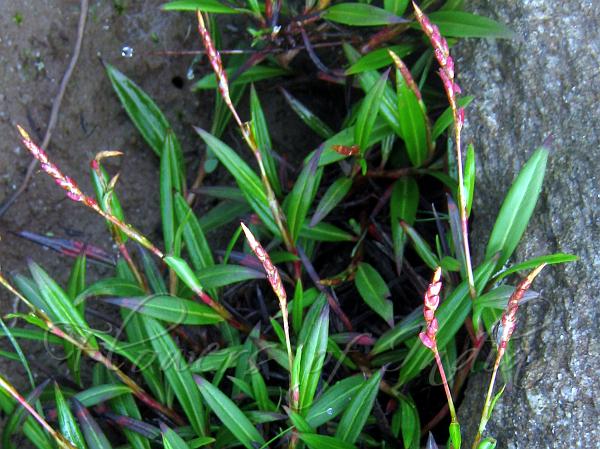|
| Snow Knotweed |
|

|

| File size | 877840 |
| Original date | 7/22/11 8:25 AM |
| Resolution | 3648 x 2736 |
| Flash | Flash did not fire, auto |
| Focal length | 6.6mm |
| Exposure time | 1/100s |
| Aperture | 3.0 |
| Focus Distance | |
| Metering Mode | Multi-segment |
| Camera make | Canon |
| Camera model | Canon PowerShot A495 |
| Sensor type | OneChipColorArea |
|
|
|
|
Photo: |
Botanical name: Bistorta emodi subsp. emodi Family: Polygonaceae (Knotweed family)
Synonyms: Persicaria emodi, Polygonum emodi
Synonyms: Persicaria emodi, Polygonum emodi
Snow Knotweed is a prostrate, hairless,
branched, woody, perennial herb with a thick root stock. The
species name emodi is derived from the Sanskrit word Him
for snow. Stems are
branched, branches few, prostrate, 10-15 cm long, woody. Leaves are
2.5-5.0 x 1.8-3.0 cm, lanceolate or linear, grass-like, acute, sessile.
Midvein is prominent above, slightly immersed, base narrowly
edge-shaped, margin curled inward, apex pointed.
Inflorescence is an erect, terminal, simple or branched, 3-4 cm, lax
flowered raceme on 6-8 cm long slender peduncles. Flowers are 1.5-2.5
mm across. Ochreolae 0.1-0.2 cm long, tubular, glabrous, ovate, acute.
Tepals are 4-5-parted, 4-5 mm long, oblanceolate, obtuse, deep red.
Stamens are 8, filaments long, filiform, equal. Ovary 1.0-2.0 x
0.5-0.75 mm, trigonous with three styles ,free till middle, stigmas
capitate. Nuts 1.5-3 x 0.75-1 mm, trigonous, black, shining, glabrous.
Snow Knotweed is found in the Himalayas, from Kashmir to Bhutan,
at altitudes of 2500-4000 m. Flowering: July-September.
| Identification credit: Krishan Lal | Photographed in Sirmaur distt., Himachal Pradesh. |